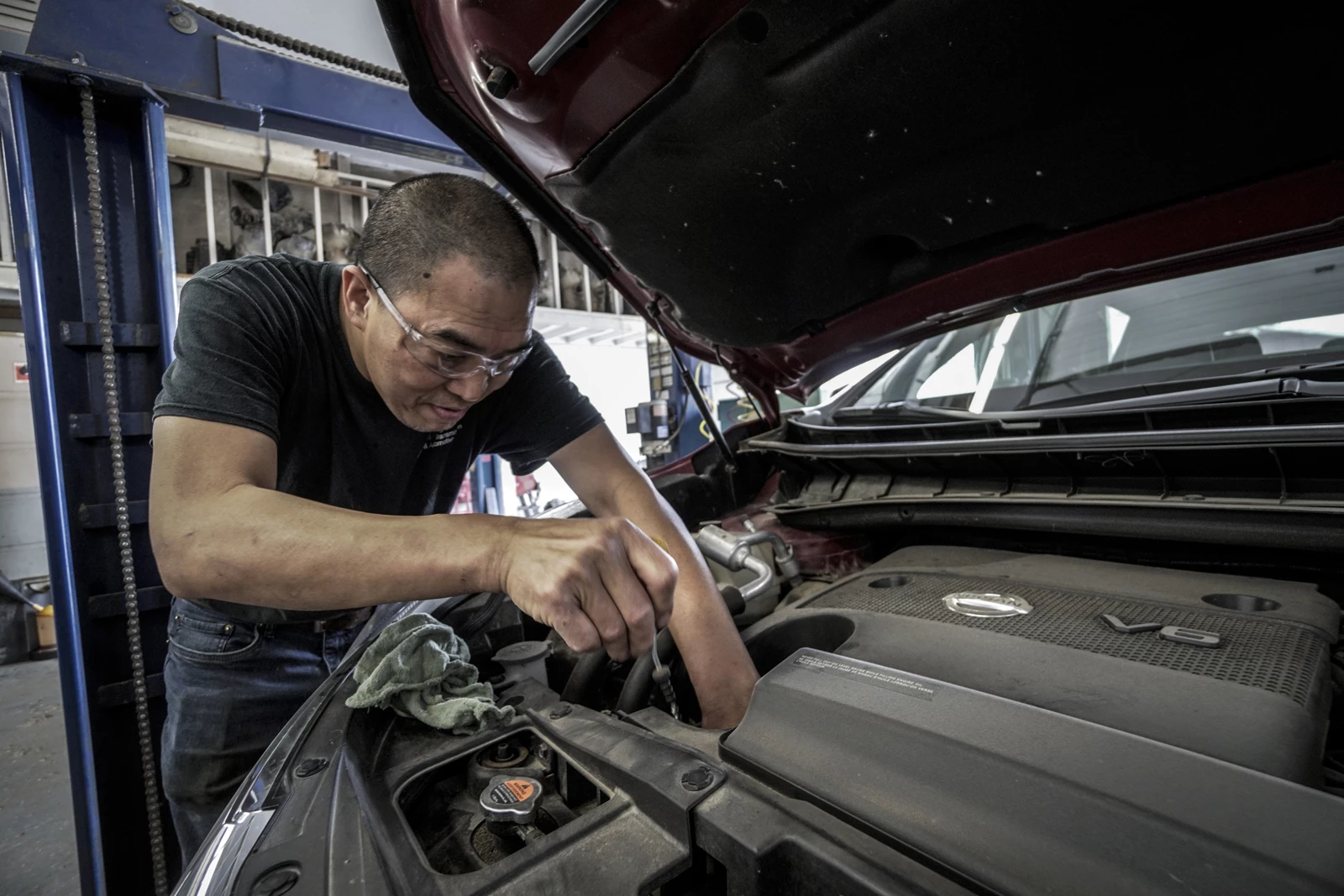10/10/2019 | Category: Commercial Insurance

Life working as a mechanic isn’t always easy. While it’s often presented as a good thing for the industry that fewer people these days are choosing to repair their own cars – it’s more work for mechanics, after all – but it makes maintaining a healthy work-life balance sometimes feel impossible.
UK drivers spend more than £20 billion a year on servicing and repair for their vehicles, which breaks down to around £700 spend per motorist. This paints the UK automotive aftermarket as being in a healthy place – but mechanics need to ensure they’re not working an unhealthy number of hours.
Not being able to get away from work at a reasonable time is just one of the problems auto mechanics face every day. In this article, we’ll discuss some possible solutions for those mechanics that find themselves still working on a customer’s car at eight o’clock at night, as part of a wider look at the problems car technicians face every day (and how to overcome them).
We’ll start with the problem we’ve touched on already…
1. Working too many hours
You can’t work more than 48 hours a week on average - normally averaged over 17 weeks – as per the ‘working time directive’. At least, that’s the legal limit as an employee. As an employer, it’s up to you how many hours you work in a week – but working too much can have a detrimental effect on your physical and mental health.
In one 2018 study, researchers at London’s City University looked at two different ways we put effort into our jobs: working additional hours (“overtime work”) and putting more physical and/or mental exertion into tasks (“work intensity”). Overall, both overtime and work intensity were found to be associated with stress, fatigue and decreased job satisfaction.
But finding a solution to being overworked is often easier said than done.
When customers ring to book their car in for repair or an MOT, they always expect a quick turnaround. This puts the pressure on you to provide them with an agreeable timeline – but sometimes you just have to say that you don’t have the space or the manpower to squeeze them in.
Or offer them a more realistic timescale that doesn’t involve you having to stay behind whilst everybody else has gone home to their families.
2. Invoice disputes
The new generation of drivers don’t have much of a clue when it comes to car maintenance. In a recent study by Select Car Leasing, more than a quarter of the motorists aged 18-24 had no idea how to check their tyre pressures, while close to half weren't sure how to measure tread depth.
While there are clear upsides of this for the car industry, the lack of knowledge on the part of the paying customer can make invoice discussions difficult. With no idea on how much things can cost, customers might think that you’re overcharging them and dispute their bill.
This is an everyday hassle you could do without. You know what you’re charging them is fair and accurate – but they don’t know that.
To avoid these kind of disputes, have a policy whereby you don’t do any work until the customer has been informed and provided with an estimation of cost. That way, the bill will never come as a surprise.
3. Unable to resolve an issue
Customers expect you to be able to resolve their vehicle’s issue without any trouble at all, perhaps forgetting that each car is different and that’s it’s impossible to have knowledge of all of them.
While you’ll have no trouble resolving nine out of ten issues, there’s always that one just around the corner that’s waiting to consume your time and leave you scratching your head.
It’s for this reason that many repair shops specialise in a particular issue or refuse to work on specific cars. This helps to avoid confusion and speeds up repair times.
But, if you’re not so comfortable with turning business away on that basis, you need to find a way of keeping across all the new technologies and developments in the industry. Keep educating yourself by reading blogs and forums; maybe even going on the odd course.
4. Know-it-all customers
We’ve already spoken about the potential problems with dealing with a motorist lacking knowledge – but it can also create an issue when a customer thinks they know it all.
Many times people bring their cars in insisting they know what is wrong and they really don't. When they’re told that it’s actually something else, because they were so adamant it was the other thing, they can refuse to your word for it, questioning your motives for not coming to the same conclusion as they did.
The internet has a lot to answer for here. But try not to be drawn into conversations where you have to prove your knowledge. Instead, invite the customer down to the repair shop to show them your workings.
Motor trade insurance from Insurance Choice
With so much on your plate every day, make your life easier by choosing the right motor trade insurance, which protects your business against any accidental damage or problems that could arise from mechanics working on a vehicle.
It is important to note that you may need this type of cover even if you’re not running a limited company. For example, if you’re self-employed but still responsible for vehicles belonging to other people, Motor Trade Insurance is always a wise investment.
Insurance Choice offers a range of Motor Trade Insurance policies depending on your job role and the nature of your business.
With extensive industry knowledge and experience, you can rest assured that Insurance Choice will help keep you protected as you embark on your new career as a mechanic. All of our policies come with a great range of benefits as standard, as well as extras you can add for a fee.
When you’re ready, get a motor trade insurance quote!
